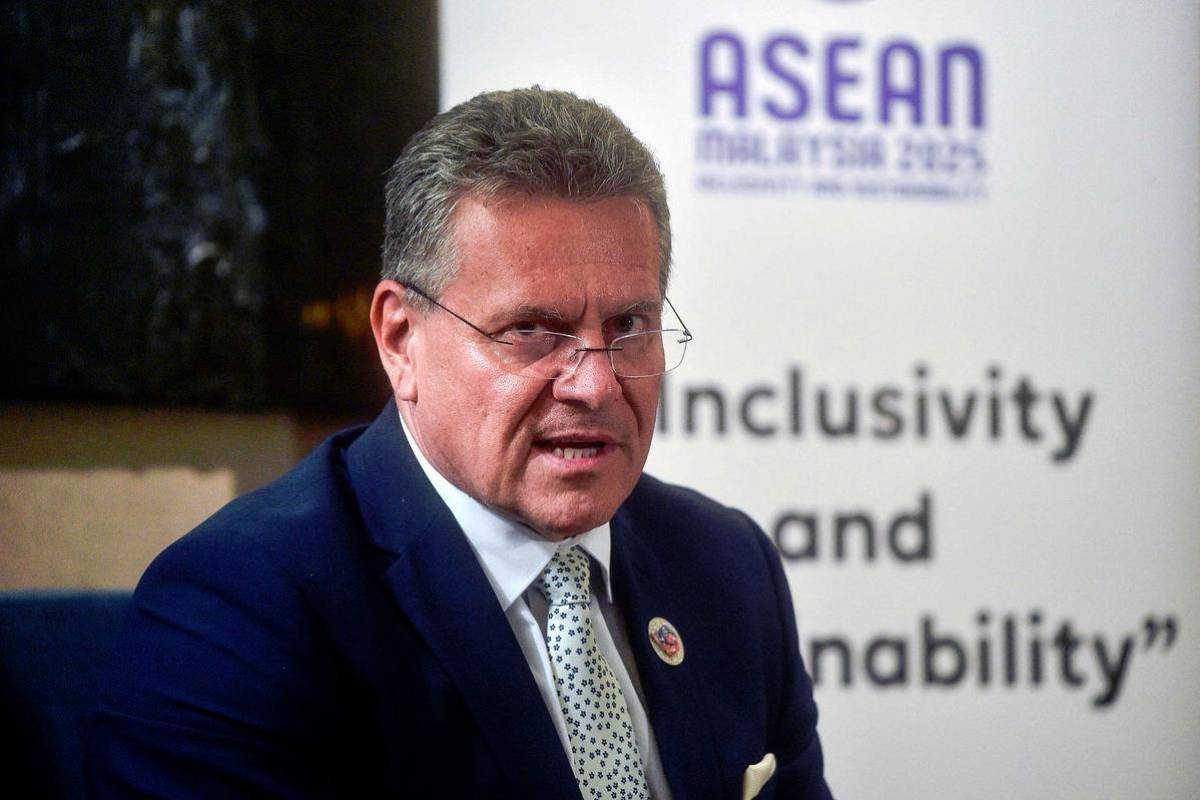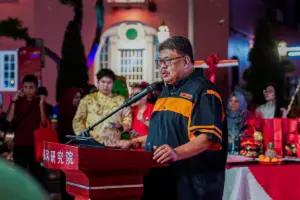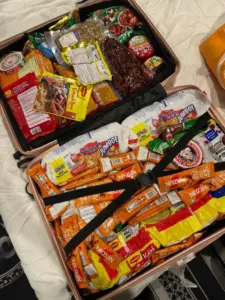KUALA LUMPUR: The European Union will persist in its discussions with the United States concerning steel and aluminium as a crucial effort to combat global overcapacity that is inundating the European market.
European Commissioner for Trade and Economic Security Maros Sefcovic confirmed the continuation of these high-level talks during a press briefing on the sidelines of the ASEAN Economic Ministers’ Meeting and Related Meetings.
Sefcovic revealed that the EU has already concluded a round of discussions with US Trade Representative Jameson Greer, covering next steps and underscoring the necessity of a joint EU-US strategy.
“We have been discussing for quite some time the creation of a sort of steel union between the EU and the US,” he told reporters.
He explained that while the two blocs do not export significant volumes of steel to each other, they share the common challenge of a global oversupply of steel products flooding their respective markets.
The Commissioner stated that an agreement was reached for him to send a formal letter to the US Secretary of Commerce and the US Trade Representative reaffirming their deal from July 27.
This communication will also highlight the critical importance of the steel and steel derivatives issue for the EU and its future business relationship with the United States.
The issue of US tariffs returned to the forefront in Europe this June when President Donald Trump‘s 50% levy on steel and aluminium imports was implemented.
In a related development, the US has reduced tariffs on auto imports from the EU to 15%, a change made retroactive to August 1.
This tariff reduction solidifies the terms of the framework trade agreement recently established between the two major economies.
Sefcovic pointed out that the EU currently receives no exemptions for its steel and aluminium exports to the US market.
This is despite the bloc shipping approximately four million tonnes of specialised steel and one million tonnes of steel derivatives to the United States every year.
Brussels has proposed a special tariff-rate quota arrangement based on historical trade flows, to be implemented alongside coordinated measures targeting global overcapacity.
The Commissioner also connected the steel issue directly to European defence and security priorities.
He stressed that Europe’s commitment to increasing military expenditure makes the protection of its domestic steel industry absolutely essential.
“If you build military hardware, you need steel,” Sefcovic stated emphatically.
He concluded by noting that the European Union is actively considering implementing further safeguard measures for its steel industry beyond the year 2026. – Bernama






